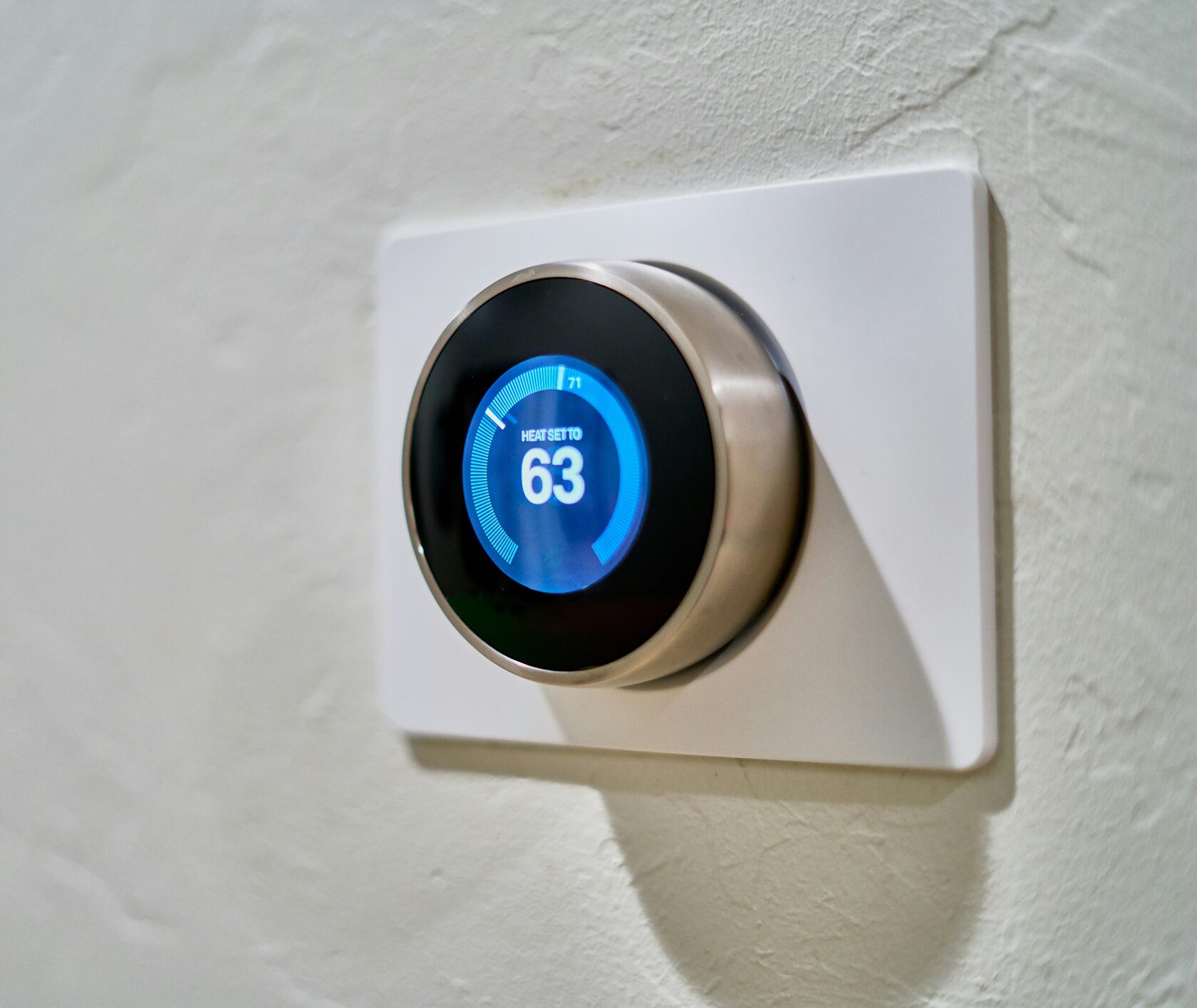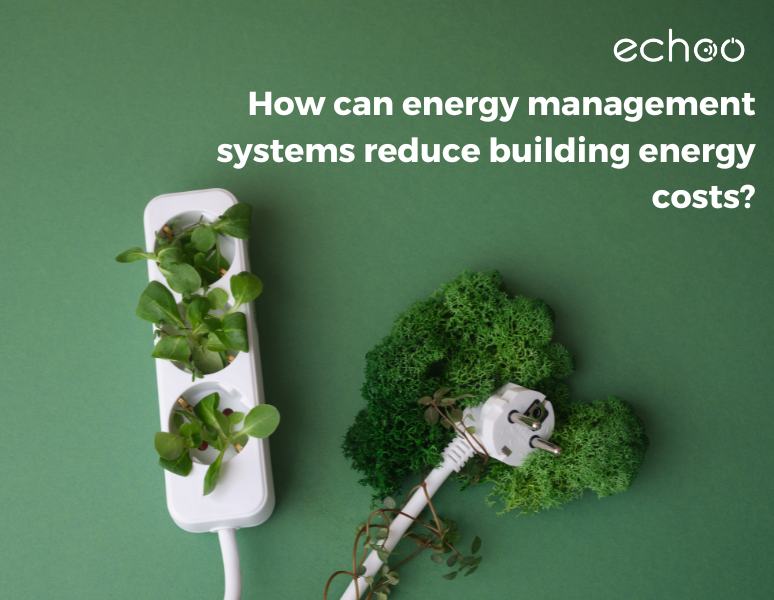Energy management in buildings has become one of the main challenges for both entrepreneurs and building owners. Data from many studies indicate that commercial and residential buildings consume around 40% of the world's total energy, while generating around 30% of global carbon emissions. This means that every inefficiently managed building significantly increases energy consumption and, consequently, the company's costs. With increasing pressure to limit climate change and rising energy prices, efficient energy management is no longer just a financial choice – it is a critical necessity.
In many businesses, energy costs are often one of the largest operating expenses. Studies show that the energy consumption of buildings is often much higher than necessary. Energy inefficiency is often associated with outdated systems, poorly maintained equipment and insufficient automation, leading to excessive energy consumption.
Without effective energy management, many building operators and business owners simply do not know where and how energy is being spent. Often, only superficial methods or manual monitoring are used, which fail to identify hidden sources of energy waste, such as overheated servers, unnecessary lighting.
In many businesses, energy costs are often one of the largest operating expenses. Studies show that the energy consumption of buildings is often much higher than necessary. Energy inefficiency is often associated with outdated systems, poorly maintained equipment and insufficient automation, leading to excessive energy consumption.
Without effective energy management, many building operators and business owners simply do not know where and how energy is being spent. Often, only superficial methods or manual monitoring are used, which fail to identify hidden sources of energy waste, such as overheated servers, unnecessary lighting.
What consumes the building's energy?
Many businesses and building owners often don't pay attention to how efficiently their buildings use energy. However, research shows that energy waste in buildings is more common than it might seem. Research data shows that up to 30% of the energy used in commercial buildings is wasted due to inefficient system operation or human behavior. What are the main factors in this energy loss?
Outdated technology and infrastructure - Many buildings still operate with outdated heating, ventilation and air conditioning systems unable to effectively regulate temperature and adjust energy consumption according to the building's needs. For example, one foreign study indicates that HVAC systems older than 10 years can use up to 50% more energy than today's high-efficiency units. Such systems increase costs and contribute to excessive energy use and increased emissions.
Inefficient infrastructure - Poor building insulation and insufficiently sealed doors and windows are another common way of wasting energy. Studies show that buildings with ineffective insulation can lose up to 30% of heating energy. As a result, heating systems are forced to work harder, consuming more energy to maintain the desired temperature.
Impact of human behavior - Even the most advanced energy management system can be ineffective if people do not use it properly. Research shows that human behavior can be a significant factor in energy consumption. According to research, people often leave lights and appliances on even when they are not needed. In an average office, lighting is on up to 40% of the time when no one is in the room. This means not only unnecessary energy consumption, but also increased bills.
Outdated technology and infrastructure - Many buildings still operate with outdated heating, ventilation and air conditioning systems unable to effectively regulate temperature and adjust energy consumption according to the building's needs. For example, one foreign study indicates that HVAC systems older than 10 years can use up to 50% more energy than today's high-efficiency units. Such systems increase costs and contribute to excessive energy use and increased emissions.
Inefficient infrastructure - Poor building insulation and insufficiently sealed doors and windows are another common way of wasting energy. Studies show that buildings with ineffective insulation can lose up to 30% of heating energy. As a result, heating systems are forced to work harder, consuming more energy to maintain the desired temperature.
Impact of human behavior - Even the most advanced energy management system can be ineffective if people do not use it properly. Research shows that human behavior can be a significant factor in energy consumption. According to research, people often leave lights and appliances on even when they are not needed. In an average office, lighting is on up to 40% of the time when no one is in the room. This means not only unnecessary energy consumption, but also increased bills.

How do modern energy management systems help you save?
Modern energy management systems offer effective solutions that significantly reduce energy consumption and improve building efficiency. These technologies monitor and control energy consumption and use data to automatically adjust systems for optimal performance. Research and data confirm that implementing such systems can significantly reduce costs and carbon emissions.
One of the main components of modern energy management systems is automation and the ability to monitor energy consumption in real time. Studies show that buildings using automated energy management systems can reduce energy consumption by up to 20%. This is achieved by automatically adjusting lighting, heating, cooling and other system elements based on actual usage and outdoor conditions. Real-time monitoring allows continuous monitoring of energy consumption throughout the building, identifying points of energy wastage and enabling quick response to any deviations.
The advantage of modern energy management systems is their ability to integrate with energy saving technologies such as LED lighting or renewable energy sources. A research report shows that buildings that integrate energy-saving technologies and efficient management can reduce energy consumption by up to 30-40% compared to buildings that do not use such technologies.
Data analysis is another important element in the efficiency of energy management systems. With advanced data analysis, energy management systems can understand long-term consumption trends, identify inefficient processes and provide recommendations for optimizing energy consumption. Research shows that data-driven decisions can help improve energy efficiency by up to 15% compared to non-data-driven systems.
One of the main components of modern energy management systems is automation and the ability to monitor energy consumption in real time. Studies show that buildings using automated energy management systems can reduce energy consumption by up to 20%. This is achieved by automatically adjusting lighting, heating, cooling and other system elements based on actual usage and outdoor conditions. Real-time monitoring allows continuous monitoring of energy consumption throughout the building, identifying points of energy wastage and enabling quick response to any deviations.
The advantage of modern energy management systems is their ability to integrate with energy saving technologies such as LED lighting or renewable energy sources. A research report shows that buildings that integrate energy-saving technologies and efficient management can reduce energy consumption by up to 30-40% compared to buildings that do not use such technologies.
Data analysis is another important element in the efficiency of energy management systems. With advanced data analysis, energy management systems can understand long-term consumption trends, identify inefficient processes and provide recommendations for optimizing energy consumption. Research shows that data-driven decisions can help improve energy efficiency by up to 15% compared to non-data-driven systems.

Echoo Group – your partner in ensuring energy efficiency and saving
Echoo Group has established itself as one of the leading companies in the field of energy management solutions, offering innovative and customized systems for different types of buildings and customers. Our solutions are designed to help businesses reduce energy costs and optimize building performance by improving efficiency and reducing carbon emissions. Echoo Group's systems are based on modern technologies that use automation and real-time data to monitor and optimize energy consumption.
The systems offered by Echoo Group work with high efficiency, reducing energy consumption, optimizing the building's internal environment and providing automated solutions. Our systems automate functions such as heating, ventilation and lighting, considering not only the time of day, but also the number of people in the building and outdoor conditions. This approach helps prevent unnecessary energy use, such as excessive heating or cooling systems running when not needed.
The systems offered by Echoo Group work with high efficiency, reducing energy consumption, optimizing the building's internal environment and providing automated solutions. Our systems automate functions such as heating, ventilation and lighting, considering not only the time of day, but also the number of people in the building and outdoor conditions. This approach helps prevent unnecessary energy use, such as excessive heating or cooling systems running when not needed.
Modern energy management systems are an essential tool to help businesses and building owners significantly reduce energy consumption, optimize infrastructure and reduce operating costs. Automation, real-time monitoring and data analysis solutions allow you to control energy consumption with maximum efficiency, improving both the building's operation and the comfort of residents. Such systems offer long-term economic benefits, as reductions in energy costs usually pay for themselves quickly, often within the first few years of operation. Additionally, the rise of energy-efficient buildings is critical to building a sustainable future. With Echoo Group solutions, companies can achieve both economic goals and sustainability standards, promoting both short-term and long-term benefits.

